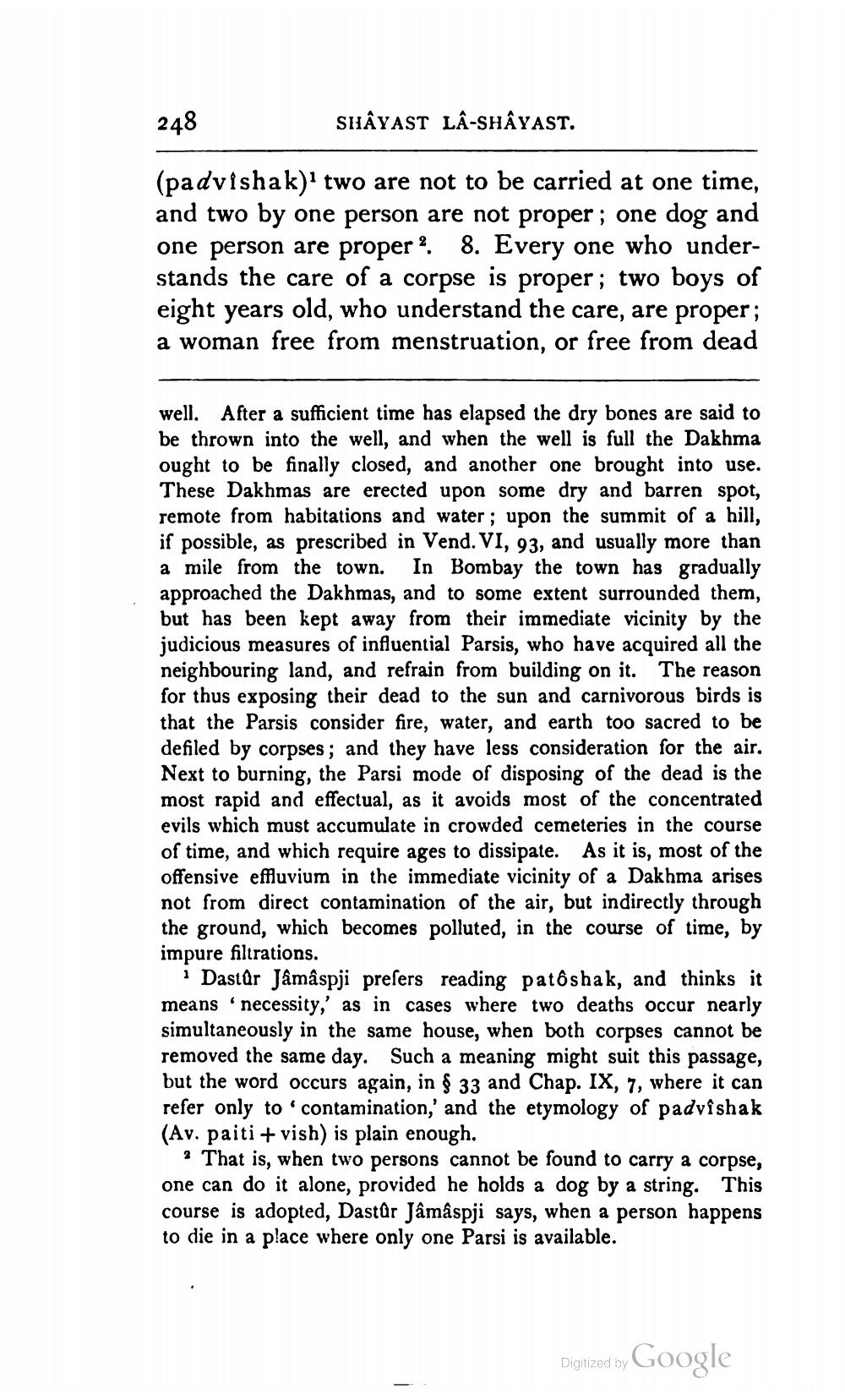________________
248
SHAYAST LÂ-SHÂYast.
(padvishak)' two are not to be carried at one time, and two by one person are not proper ; one dog and one person are proper ? 8. Every one who understands the care of a corpse is proper; two boys of eight years old, who understand the care, are proper; a woman free from menstruation, or free from dead
well. After a sufficient time has elapsed the dry bones are said to be thrown into the well, and when the well is full the Dakhma ought to be finally closed, and another one brought into use. These Dakhmas are erected upon some dry and barren spot, remote from habitations and water; upon the summit of a hill, if possible, as prescribed in Vend. VI, 93, and usually more than a mile from the town. In Bombay the town has gradually approached the Dakhmas, and to some extent surrounded them, but has been kept away from their immediate vicinity by the judicious measures of influential Parsis, who have acquired all the neighbouring land, and refrain from building on it. The reason for thus exposing their dead to the sun and carnivorous birds is that the Parsis consider fire, water, and earth too sacred to be defiled by corpses; and they have less consideration for the air. Next to burning, the Parsi mode of disposing of the dead is the most rapid and effectual, as it avoids most of the concentrated evils which must accumulate in crowded cemeteries in the course of time, and which require ages to dissipate. As it is, most of the offensive effluvium in the immediate vicinity of a Dakhma arises not from direct contamination of the air, but indirectly through the ground, which becomes polluted, in the course of time, by impure filtrations.
i Dastar Jâmâspji presers reading patôshak, and thinks it means 'necessity,' as in cases where two deaths occur nearly simultaneously in the same house, when both corpses cannot be removed the same day. Such a meaning might suit this passage, but the word occurs again, in § 33 and Chap. IX, 7, where it can refer only to contamination, and the etymology of padvîshak (Av. paiti + vish) is plain enough.
? That is, when two persons cannot be found to carry a corpse, one can do it alone, provided he holds a dog by a string. This course is adopted, Dastar Jâmâspji says, when a person happens to die in a place where only one Parsi is available.
Digitized by
Digitized by Google




